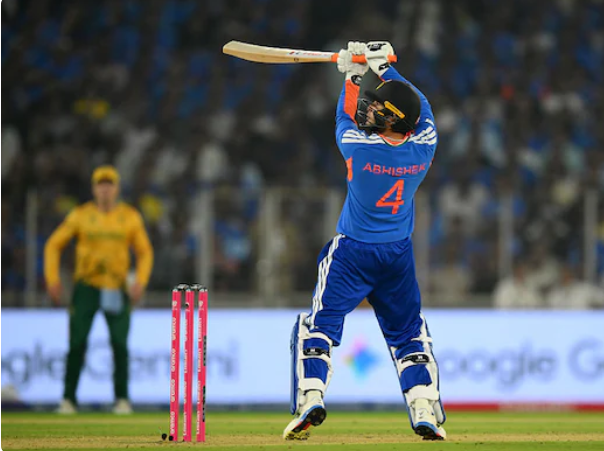Trending
Mentally unwell man reunited with family in Maharashtra’s Yavatmal after 10 years
On August 16, the residents of his native village held a welcome ceremony for him as he had returned after a decade, Kakade said.

LATEST SPORTS NEWS
ICC Men’s T20 World Cup 2026: South Africa outclass India with smart slower-ball strategy in Super 8
South Africa registered a commanding 76-run win over India in the T20 World Cup 2026 Super 8 match, using disciplined slower deliveries and a key Miller-Brevis partnership.
Cricket news
Shadab Khan lands in trouble after ‘we’ve beaten India’ remark, PCB issues warning: Report
Shadab Khan has reportedly been advised by the PCB to mind his language after his remarks on former players following Pakistan’s loss to India stirred controversy.
LATEST SPORTS NEWS
India maintain clean sheet after 17-run victory over the Netherlands
India defeated Netherlands by 17 runs in their final Group A match of the T20 World Cup 2026, with Shivam Dube and Varun Chakravarthy playing decisive roles.
-

 India News19 hours ago
India News19 hours agoAs stealth reshapes air combat, India weighs induction of Sukhoi Su-57 jets
-

 Cricket news18 hours ago
Cricket news18 hours agoRinku Singh returns home from T20 World Cup camp due to family emergency
-

 India News17 hours ago
India News17 hours agoTamil Nadu potboiler: Now, Sasikala to launch new party ahead of election
-

 Latest world news5 hours ago
Latest world news5 hours agoTrump says tariffs will replace income tax, criticises Supreme Court setback in key address
-

 Latest world news5 hours ago
Latest world news5 hours agoTrump repeats claim of averting India-Pakistan nuclear war during Operation Sindoor
-

 Latest world news5 hours ago
Latest world news5 hours agoPM Modi to begin two-day Israel visit, defence and trade in focus
-

 India News5 hours ago
India News5 hours agoShashi Tharoor questions Centre over Kerala name change to Keralam
















